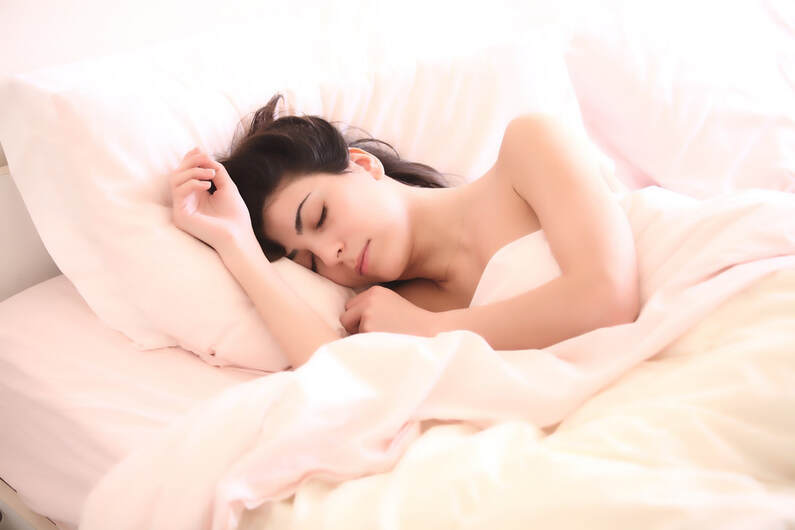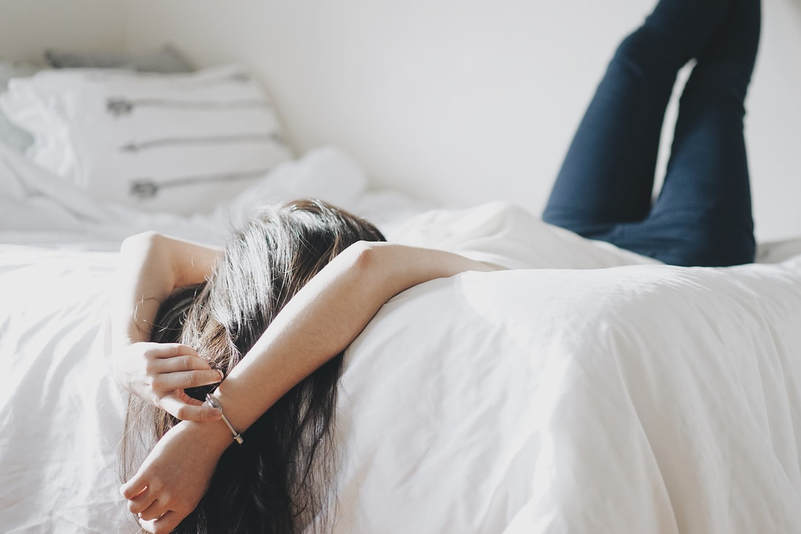Trouble Falling Asleep? It’s Not You, It’s the Season
Getting enough sleep is crucial for good health. Adequate sleep can reduce the risk of obesity and heart attacks, help you recall more information, and strengthen your immune system. However, life happens, and it is hard to always get enough sleep. Many factors can affect sleep quality, such as stress from work or school, light exposure, emotions, and foods with caffeine or alcohol. A recent study focused on one of the factors that can affect sleep: light exposure. The study in question wanted to see if there was a relationship between seasonal changes in sunlight and changes in sleeping behavior in undergraduate college students. After a year of observing sleep patterns in students, researchers found that there was a strong correlation between seasons and the time students went to sleep.
In the study, researchers used watches to track the sleep patterns of undergraduate students for one year. Researchers also measured how much daylight over a certain threshold was available each day, then correlated it to the amount of sleep students got. The study concluded that students tend to sleep later in the fall and winter than in the summer. Additionally, students set more alarms in the fall and winter quarters, indicating that they needed more technological help in order to wake up early in fall and winter.
In the study, researchers used watches to track the sleep patterns of undergraduate students for one year. Researchers also measured how much daylight over a certain threshold was available each day, then correlated it to the amount of sleep students got. The study concluded that students tend to sleep later in the fall and winter than in the summer. Additionally, students set more alarms in the fall and winter quarters, indicating that they needed more technological help in order to wake up early in fall and winter.
Image Source: DeeDee51
Although the study concluded that students tended to sleep and wake up later in the fall and winter, there could have been other factors that caused their change in sleeping patterns. For example, students could have woken up later because they had classes that started later in the fall and winter. Also, other studies have differing conclusions on the relationship between light and sleep patterns. One such study found that students living at lower latitudes, or latitudes closer to the equator, were less affected by seasonal changes than students living at more northern latitudes. This could be because the amount of sunlight remains relatively constant at lower latitudes, while the amount of sunlight varies with the seasons at higher latitudes. Also, access to electric lights decreases the effect natural light exposure has on sleep patterns. Electric lights delay the release of melatonin, which causes people to sleep later.
Knowing that it can be harder to wake up in the fall and winter could help people plan around the seasons and make sure they get enough sleep. For example, access to electric lights leads to people sleeping later, so turning off the lights sooner can help people sleep earlier during the fall and winter months. Also, some general sleep tips can help one get better sleep. For example, adults generally need about 8 hours of sleep each day. Achieving this quota can help people feel more rested and healthy. One way to get more sleep is sticking to a sleep schedule. Sleeping and waking up at the same time every day supports the body’s circadian cycle, or sleep-wake cycle. This in turn helps people get more sleep.
Additionally, being mindful of diet can help people fall asleep more easily. For example, avoiding nicotine, caffeine, and alcohol before bedtime is beneficial because these stimulants can disrupt sleep. Getting enough exercise (about 30 minutes a day) is also important for people’s health, and for better quality sleep. Lastly, creating a restful sleeping environment also helps with sleep quality. As mentioned earlier, exposure to light in the evenings correlates with sleeping later, so limiting exposure to light in the evenings can help people get more sleep. Additionally, blackout curtains, earplugs, and fans can help create a more relaxing environment to sleep in.
Knowing that it can be harder to wake up in the fall and winter could help people plan around the seasons and make sure they get enough sleep. For example, access to electric lights leads to people sleeping later, so turning off the lights sooner can help people sleep earlier during the fall and winter months. Also, some general sleep tips can help one get better sleep. For example, adults generally need about 8 hours of sleep each day. Achieving this quota can help people feel more rested and healthy. One way to get more sleep is sticking to a sleep schedule. Sleeping and waking up at the same time every day supports the body’s circadian cycle, or sleep-wake cycle. This in turn helps people get more sleep.
Additionally, being mindful of diet can help people fall asleep more easily. For example, avoiding nicotine, caffeine, and alcohol before bedtime is beneficial because these stimulants can disrupt sleep. Getting enough exercise (about 30 minutes a day) is also important for people’s health, and for better quality sleep. Lastly, creating a restful sleeping environment also helps with sleep quality. As mentioned earlier, exposure to light in the evenings correlates with sleeping later, so limiting exposure to light in the evenings can help people get more sleep. Additionally, blackout curtains, earplugs, and fans can help create a more relaxing environment to sleep in.
Featured Image Source: Claudio_Scott
RELATED ARTICLES
|
Vertical Divider
|
Vertical Divider
|
Vertical Divider
|






